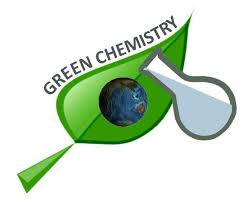
The concept of green chemistry applies across the entire life cycle of a chemical product, which includes the chemical’s design, method of manufacturing, utilization, and, at the end of the chemical’s use or life cycle, disposal. Green chemistry is also called sustainable chemistry by scientists and those involved in industry. Other benefits and advantages to green chemistry involve the prevention of pollution at the molecular level, the application of innovative scientific solutions to real-world environmental problems, the resulting in source reduction because it prevents the generation of pollution, and the reduction of the negative impacts of chemical products and processes on human health and the environment. In addition, green chemistry lessens and sometimes even eliminates hazards from existing products and processes, as well as aides in the design of chemical products and processes to reduce their intrinsic hazards. Green chemistry is a philosophy that applies to all areas of chemistry, not merely a single discipline of chemistry, as it relates to industrial cleaners. However, the ability to make industrial cleaners safer is definitely one of the most integral aspects of green chemistry.
To learn more about the importance of green chemistry as it pertains to improving industrial cleaner safety, contact Ecolink – a company invested in harvesting eco consciousness industrial businesses that depend on industrial cleaners to clean parts, metals, materials, and many other industrial products. Ecolink works to promote and educate the validity and importance of green chemistry, offering evidence to industrial organizations of the myriad advantages of incorporating green chemistry, which leads to making industrial cleaners safer. An Ecolink professional will be happy to explain the principles of green chemistry, and why transitioning to safer industrial cleaners will be one of the best investments your industrial organization will ever make.














